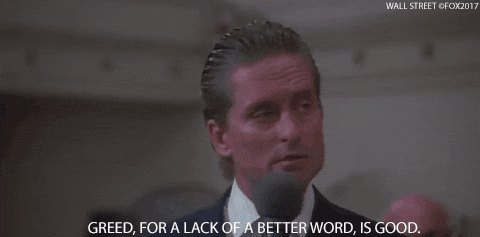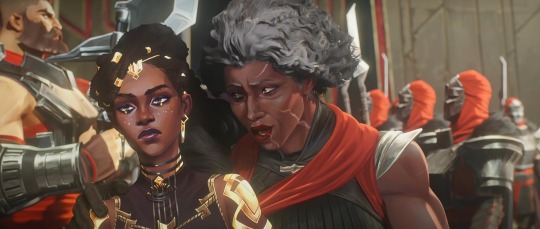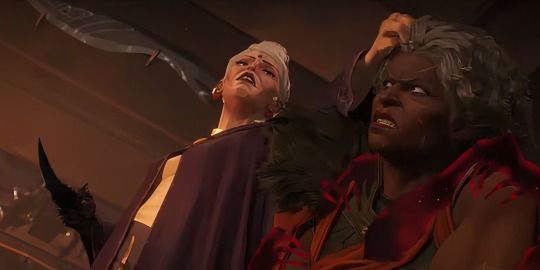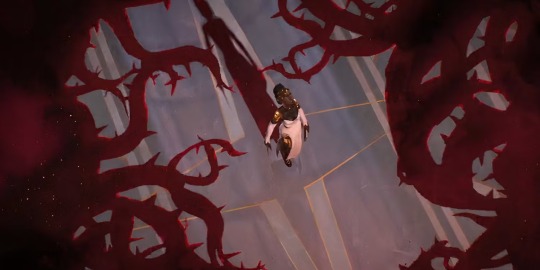#Economic Boon
Explore tagged Tumblr posts
Text
Applied Economics teaches the Sacramento Kings how to polish a small turd into a large diamond
Today, I saw an unbelievable story. Did everyone see that the NBA’s Sacramento Kings Arena, the Golden 1 Center, was continuing “to stand as a powerhouse contributor to the economic vitality of the Greater Sacramento region metropolitan area”? This report included all sorts of massive numbers that really stunned me. Who knew that the team and arena had contributed in 2022-2023 alone about $665…

View On WordPress
#Applied Economics#Bond Payments#California#Chamber of Commerce#Economic Boon#Economic Ecosystem#General Fund#Golden 1 Center#NBA#Oklahoma City#Sacramento#Sacramento Bee#Sacramento Kings
0 notes
Text

“In 1932, Adolf A. Berle Jr. and Gardner C. Means wrote a book entitled The Modern Corporation and Private Property. A critique of corporate management for being aloof and complacent, out of touch with the consumer and irresponsible to the stockholder, this volume became the bible of Marxists, left wing intellectuals and interventionist politicians. Under the banner of separation of ownership and control, the Berle-Means thesis led to an attack on the corporate structure from which today's top executives are still reeling.
With this background, one would have thought that the people urging a greater role for the public sector would have welcomed the advent of the corporate raider. For this new breed of capitalist has sent shivers down the spines of the denizens of the boardroom. Swooping down, launching "unfriendly" or "hostile" takeover bids, these corporate raiders have succeeded in replacing management from coast to coast in dozens of industries, and in frightening thousands of other out-of-touch chief executive officers into greater responsibility.
At least under the theory of "the enemy of my enemy is my friend," it might have been expected that critics of the marketplace, noticeably the followers of Berle and Means, would have rallied `round the cause of the corporate raider.
In the event, however, this expectation has remained unfulfilled. Not only has the activity of the corporate raider been deprecated by the champions of government interference in the marketplace, but it has been roundly condemned by practically all pundits and commentators on public policy. In 1987, the left-leaning film director Oliver Stone distilled the common image of the corporate raider into the supposedly loathsome Gordon Gekko, brilliantly portrayed in an Oscar-winning performance by Michael Douglas. And this is the image of Gekko under which the corporate raider must labor in the present day.
Yet, despite this all-but-universal criticism, the unfriendly takeover bid has benefited consumers and stockholders, and served notice on complacent management across the board. In one celebrated case that unfolded shortly before Stone's film Wall Street was released, corporate guerrilla Carl Icahn put in a bid for a block of shares of Phillips Petroleum. Stung by Icahn's bid, Phillips' executives offered to improve a recapitalization plan they had been forced to put forth in response to an earlier planned takeover, this one by T. Boone Pickens. As a result, Icahn walked away with a cool $50 million, Pickens registered a profit of $89 million on a resale of his holdings to the company, all Phillips' shareholders gained from the better offer, and the oil firm itself was left far leaner and meaner than before.
Needless to say, neither Icahn nor Pickens nor any of the other masterminds of "the 1980s takeover boom," were publicly thanked for the good they had done. On the contrary: both men were not only mocked by Oliver Stone, they were also robbed of the opportunity to do any more such good by a rash of anti-takeover statutes adopted late in the decade. Henry Manne reported that hostile takeovers had "declined to four percent from fourteen percent of all mergers."
The conventional wisdom holds that this outcome is a good one for investors, but the facts show otherwise. No story of the corporate raider can ignore the role of the heroic Michael Milken. Assume there was a hotel worth $20 million as a present discounted capital value. Given an interest rate of 5%, this concern should throw off roughly $1 million to its owners. But stipulate that due to inefficiency, or general avarice, or to the fact that the CEO salary was far higher than justified, or a combination of all such phenomena, the owners were earning far less than that in dividends. And, guess what? The stock was trading at a lower value than might have prevailed, had these tape worm factors not been in operation.
Enter the "evil" Michael Milken. He swoops in, purchases enough of the stock in this corporation to kick out the old board and replace it with his own nominees. This is considered a "hostile" takeover by a corporate "raider." From whence springs the hostility? All Milken did was buy up a mess of stocks. Did he threaten any of these stock owners that they would walk the plank if they did not sell to him? No, of course not; we are talking arm's-length stock market deals here. We can logically infer that the owners of these stocks preferred the price offered them by the "raider," otherwise they would not have sold out. No, the "hostility," instead, stems from the CEO and his cronies who were mismanaging this hotel into the ground.
The Milkins of the world are akin to the canary in the mine; they are the Distant Early Warning Line for the economy.
When they get active, it is in response to something rotten that is going on. And what was the public reaction to this corporate raider? Instead of hoisting him up on their shoulders and holding ticker tape parades in his honor, he was given the back of the public's hand to his face. To wit, he was prosecuted by the Securities and Exchange Commission for insider trading, violations of U.S. Securities Laws and other financial felonies. He pled guilty only after the authorities threatened to go after his ailing brother. For shame.” - Walter Block, ‘Defending the Undefendable II’ (2013) [p. 41 - 44]
#block#walter block#defending#undefendable#corporate#raider#gordon gekko#wall street#oliver stone#Drexel Burnham#icahn#carl icahn#berle#adolf berle#gardner means#private property#capitalism#liberty#libertarian#libertarianism#hero#heroic#ayn rand#objectivism#economics#austrian economics#michael milken#milkin#T Boone Pickens
6 notes
·
View notes
Text
Remembering high school social studies debates
#logxx#Being in a position where everyone argues that Chinese imperialism is worse than US imperialism (the actual argument)#And failing to come up w an actual reason why it's worse other than the US doesn't like China#The US Would Never Offer Economic Boons To 3rd World Countries to Perpetually Indebt Them#I literally wanted to rip my hair out
5 notes
·
View notes
Text
High Land Value, High Water, and The State’s Investment
High Land Value, High Water, and The State’s Investment October 22, 2024 By Kimberly Mann Investment in our country always sounds like an excellent idea and opportunity for growth but pitfalls may include higher property taxes due to large acreage bought at higher than normal prices, higher water bills, and very little if any benefit due to expenditure-return ratio. Indiana has spent more…
#Boone county#economic Development Administration#Eli lily#iedc#Indiana#Indiana economic development corporation#Lebanon#Legislation#Wabash river
0 notes
Text
every time someone in the imperial core- especially the US- does whatever outrage theatre about potentially losing access to imperial benefits like cheap and universally accessible bananas- primarily from Guatemala- i think about all the imperial boons that aren't even stated. Brazilian lumber. Congolese copper. Colombian coffee. Indian gemstones. Malagasy vanilla. Mexican liquor. Ecuadoran shellfish. Vietnamese textiles. Peruvian gold. motor vehicle parts, unrefined petroleum, raw aluminum, leather, plastics, vegetable oils, cement articles, furniture, and on and on and on, exploited and stolen at gunpoint the world over. the enormity of violence that buys their comfort is practically impossible to overstate, as is its ubiquity. an endless cavalcade of invasions and coups and unpayable loans and structural adjustment policies and legal and economic advisors preaching austerity. it is an imperial benefit in itself to be capable of ignoring something so omnipresent and overtly insulting to immediately launch into a "woe is me!" act whenever they can't
7K notes
·
View notes
Note
i have a question and sorry if it sounds incoherent. why is it so important to marxists to distinguish that marxism is not “moral” or “ideological”? i understand that marxism is grounded in historical materialism and that it aims to understand how existing structures and institutions function with the specific goal of abolishing them in favour of a marxist state, but when it comes to understanding how to move forward past capitalism, how can MLs claim that it’s entirely objective and scientific? isnt the fundamental purpose of marxism (abolishing the oppressor class and putting the proletariat in power) a subjective one, given that it to support that you need to believe that abolishing the oppressor class is desirable in the first place? how would ML “scientifically” help people decide where the line is drawn on subjects like the death penalty and incarceration if its committed by a communist party (given that the decision that the cost of killing/imprisoning people is worth the boon it would give in establishing a communist state is still based on subjective goals?)
i don't think modern marxists should claim they're not ideological. im sure some do, but imo the correct claim is marxism is not idealist. i think some of this confusion comes from a popperian view of science as "neutral" or "objective" outside of time. how the political economy affects the propagation of ideology and the process of science as practiced in reality is very standard marxist analysis now. some of the claim to objectivity is something that most people claim belongs to their favourite philosophical project see the rawlsian veil of ignorance in liberalism. marx is also writing in a world where theological and religious reasoning have a lot of primacy in philosophy and he is drawing a clean break from that by hewing to scientific characterisation of his methods.
idealism, in the kantian sense is a philosophy that argues that our ideals (about say, fairness, justice etc) inform how we organise society. marxism, as philosophical project develops in response to kant and hegel to argue that the political economic base, ie the productive relations of society actually inform superstructure of ideals. to quote marx in the preface to critique of political economy: "it is not the consciousness of men that determines their existence, but their social existence that determines their consciousness."
for clarity's sake the idea that changes in the mode of production (mostly due to technology) transform the relations of production which is the main driving force of history is historical materialism. the analysis of why existing structures and institutions must be abolished therefore has to be grounded in analysis where such structures are considered variously – unstable, internally contradictory etc. if you view historical materialism as true, your theory of change cannot be that you'll change the world because it is unfair (an idea.) you can view the world as unfair as a marxist and talk about it to propagate the necessity of your project but that doesn't actually give you a blueprint on how to change it.
capitalists are oppressors, but marxism doesn't view the problem in their oppressive or evil natures. capitalist economies demand even the most moral capitalist to exploit the proletariat. but! it is desirable to abolish there class relations not merely because they are unfair and exploitative but because these class relationships cause workers to develop class consciousness, recognise their power and abolish capitalism.
on your specific example, i don't think marxism can or should claim their are no moral dilemmas. historical materialism doesn't assert that there are no conflicting understandings of history. walter benjamin's theses on the philosophy of history is imo good reading here.
so i dont think your concern about why it's important for marxists to believe this makes sense, because this is what marxism is. if you don't find this convincing, you're not a marxist. you could be an anarchist, or a social democrat or a radical liberal.
299 notes
·
View notes
Text
Humans are weird: Do not give them Toys
( Please come see me on my new patreon and support me for early access to stories and personal story requests :D https://www.patreon.com/NiqhtLord Every bit helps)
When the human government wished to initiate trade with the Filthrax Conglomerate the Filthrax were understandably cautious. They had always been sensitive when it came to sharing technology with other species. To that end they had an extensive amount of restrictions on what could and couldn’t be traded; excluding much of their more advanced technology from ever reaching the market.
The humans in comparison were technologically inferior to the Filthrax in nearly every aspect so they pictured the humans to heavily lobby for advanced technology to be made available. So it was with some surprise that when negotiations began the humans did not lobby for advanced technology, they instead seemed deeply invested in obtaining the Filthrax toys.
This was not something the negotiators had expected. Research into human culture had showed a deep rooted sense of aggression, towards outsiders and themselves when promoted, which made them believe that the first opening bid would be towards military grade technology.
Sensing the discord, the human diplomats explained that while they would like more advanced technology to be an option, they understood the hesitance and reluctance to trade such dangerous items. They said they would be fine earning the Filthrax’s trust over an extended period of time through trade. It seemed that several human enterprises had their eyes on Filthrax toys and they seemed like a safe enough items to begin trade. The Filthrax agreed and so trade lines were opened between the great powers.
What the aliens saw as a harmless deal was in fact the first foot in the door that could never be closed.
Several million orders for toys were placed almost overnight and the economic boon was felt overnight throughout the Filthrax Conglomerate. None of them understood the fascination humans had with their trinkets but if they were willing to pay then they would be more than happy to sell. It wasn’t until the Nexus Wars began that the Filthrax would come to understand their folly.
The “Nexus” was a series of star systems that held the majority of trade lanes between the core worlds and the far flung resource rich outer zones. Trade through these lanes was deemed to be the most stable for long distance transportation so whoever controlled these regions would make considerable wealth from their stewardship.
Current stewardship fell to the Omicron Empire who had held the systems for the last several hundred years and as such used the profits it generated to fund their empires expansion. The humans wished to control these routes to fund their own imperial ambitions but had never leveled the playing field with the Omicron military to make such a transgression possible.
Then, without warning, the human military launched a series of strikes against Omicron bases and fleets in the Nexus systems triggering the “Nexus War”. The Omicrons raised their fleets and armies and dispatched them to the systems with the full intention of repelling the humans and then carrying on their counter offensive into human space. What they met however was a suddenly technologically advanced human military spouting drastic advances in military equipment not seen.
Human soldiers now carried portable shielding units that blocked everything less than a direct hit from a hover tank, while their ships launched fusion bombs carrying a heavy enough payload to shatter Timbar class battleships in half.
With this new technology, the human military had taken control of half of the Nexus systems within five months of the wars start. Other powers dotting the stars took notice of the sudden prowess of the human military, as well as the calculations predicting that within another five months the Omicron Empire would be driven from the Nexus systems. Some cheered at seeing their old rivals in the Omicron’s brought low, others sent delegations to the human government pledging alliances and treaties, many more came to join the war effort now sensing blood amongst the stars; but to the Filthrax, they quickly came to realize the part they had played in this war.
While Filthrax toys were rather unremarkable, they were unique in the way that their power sources could last an entire lifetime. Through controlled energy distribution, the Filthrax had created a rudimentary power source that, while considered basic in their society, was light years ahead of any neighboring species.
The humans were well aware of this feature.
They knew before negotiations even began that the Filthrax would never part with their advanced weaponry or technology, but they would be willing to part with something they considered nothing more than a toy. Toys that were then torn apart to get to the power source, reverse engineered, and then used to power weapons and machines of human design.
Filthrax toys were now forming the basis for a new galactic power, and they had been fooled into giving them away for nothing more than currency.
The sudden realization sent shockwaves through the upper echelons of the Filthrax. If they admitted this they would be not only be publically humiliated on a galactic scale; but also be portrayed as cobelligerents in the war. Not only that, it would invalidate their own standing treaties with other species which specifically stated they would not trade anything that could be repurposed for war. They could see trade agreements torn asunder for a dozen species with even embargos placed upon their territories. Worse yet was if they did cease trading with the humans the human government could release the information and still black list them to the wider galaxy.
So they sat and watched the war from the sidelines, contemplating that their bobbles may have very well just doomed the universe.
#humans are insane#humans are weird#humans are space oddities#humans are space orcs#scifi#story#writing#original writing#niqhtlord01
961 notes
·
View notes
Text
"When politicians unveil a new national park or wilderness area, it’s often accompanied by debates about what effect it will have on the livelihoods of people living nearby. In some places, it can be welcomed as a boon, attracting tourists and their dollars. In others, it’s booed as a job killer, squelching the chance for new mining, grazing, logging or other industries.
As nations promise to nearly double the amount of protected land on the planet, from 17% to 30% of the Earth’s surface, these debates are likely to happen more often. Now there is new evidence that it’s possible to have both land protections and a growing economy. But it’s not guaranteed. “Achieving both aims is more common than we previously expected,” said Binbin Li, an environmental scientist at Duke Kunshan University, a Chinese institution affiliated with Duke University. “But that balance depends on socioeconomic conditions near a protected area.”
It can be hard to tease out causal links between two things as complex as the changing condition of a landscape and the economy of a nearby city. Did a town flourish because of a nearby national park, or because an increase in remote work enabled people to move there? Did another town collapse because a forest reserve contributed to the demise of a sawmill, or was it part of a bigger downturn in the timber industry?
To try to clarify the effects, Li and colleagues at Duke University and Shandong University in China compared the fates of “twin” towns and cities, as well as comparable patches of land. They identified more than 10,000 protected areas in countries around the globe, then examined how economic activity changed in nearby settlements between 2013 and 2020, compared to similar settlements more than 20 kilometers from any protected land. They also matched the protected area to similar nearby unprotected areas, to see if they fared differently.
The scientists used satellite images to track changes on the landscape, such as forest turning to farmland. They also tracked changes in the amount of nighttime artificial light as a surrogate for economic activity.
The satellite images revealed that in many cases, more trees and grasslands stayed standing and the lights shown more brightly at the same time. In about half the protected areas, there was simultaneous progress in both conservation and economic development, the scientists reported on June 20 in Current Biology.
Land protection was broadly successful at reducing the loss of forest and grasslands – more than 90% of the protected areas either lost no natural land cover, or less than their unprotected twins, the researchers found. At the same time, 60% of neighboring communities had as much or more of an increase in nightlights than places further from protected land...
Land protection and economic growth went hand in hand most easily in wealthier countries, around smaller protected areas, and in places with some of the infrastructure critical for economic development, such as roads. In places without these features the ecological fate of the land and the economic fortune of nearby towns was more likely to diverge or decline together the researchers found.
“Conservation does not happen in a silo,” said co-author Stuart Pimm, a Duke University ecologist. “We must consider local development alongside biodiversity conservation to know where and how to protect areas to benefit both the environment and humans.” ...
The results underscore the ways in which poverty and environmental degradation can be bound together. If poverty isn’t dealt with, creating protected areas could set the stage for both loss of biodiversity and economic development, the researchers warned. The flip side is that with careful planning, conservation could help set nearby towns on a path out of poverty. As an example, the scientists pointed to Costa Rica’s Corcovado National Park, which has become a hub for ecotourism on the country’s Pacific coast.
“We need to get to a win-win outcome more often, especially in the most biodiverse regions that can ill-afford losing out on economic development or biodiversity,” said Li. “We cannot address biodiversity loss without addressing local development issues.”
-via Anthropocene Magazine, June 26, 2024
#would be super interested to hear the thoughts of science and statistics people#on the methodology of this study#like it's probably about as direct as it can be at such a large scale but still pretty indirect#anyway#human development#conservation#poverty#global poverty#climate change#climate action#biodiversity#good news#hope
310 notes
·
View notes
Text


⠀ Economists have repeatedly warned that the second Trump administration will be a boon to the ultra wealthy and a backslide for everyone else. Elon Musk is in agreement, and he wants regular Americans to just suck it up. Under Trump, Musk will not only be granted a tax boon, but a position in the federal government where his decisions would — by his own admission — steamroll Americans desperate for economic stability.
#elon musk#trump#politics#government#us politics#America#USA#donald trump#democracy#republicans#democrats#GOP#American politics#aesthetic#election#elections#beauty-funny-trippy#Washington DC#maga#conservatives#vote#voting#presidential election#oligarchy#news#current events#economy#economics#finance#business
124 notes
·
View notes
Text
Maybe this is just a product of the social circles I'm in, but there seems to be a pretty disproportionate amount of transgender (and especially transfem) anticivs out there. And like yeah, various social categories and personal identities that we today would understand as and classify as "transgender" have existed long before we had even the beginnings of modern medical transition (since before recorded history in fact). And no form of medical transition is necessary in order to be transgender even when it is available; someone who lives their life without any surgery or hormone replacement or anything can be every bit as "transgender" as someone who's gone through every medical intervention under the sun.
But like you have to realise that this technology is a massive boon for transgender people as a whole; a literal lifesaver in many cases. Not merely as a way for someone to better assimilate into cisnormative society, try to protect themselves from structural transphobia, but as a way to live as version of themselves they much prefer, a path to personal happiness which in many cases is quite outside the bounds of cisnormativity. There's a reason why this technology was invented in the first place and why so many trans people fight so hard and sacrifice so much in order to access it. So like the abolition of the social structures and economic basis which make this technology possible is very directly against the interests of the trans community
But maybe you don't care about all this medical bullshit; you're on that "Bronze Age Femboy Priestess" grindset and so this aspect of your ideology doesn't personally affect you. Very selfish but whatever. But it honestly hurts my brain whenever I see someone who is engaged in medical transition while opposing it's very physical basis. Like even the whole "make estrogen from horse piss" requires equipment that can't be viably produced without a socio-economic structure that would (as much as the word has any meaning) doubtless count as "civilised". The body you have cannot physically exist in the the world you are trying to create. Your ideology is self destructive in the most literal way
162 notes
·
View notes
Text
Gonna re-post this here as its own separate post for those who want to understand what the Black Rose arc was about.
———
Ambessa discovered the Black Rose, a group of Noxian mages that go against the beleifs of Noxian culture to keep people in check. The Black Rose act as a sort of secret society that controls Noxian culture from the inside. Making sure that nobody ever rises too high in their eyes.

Ambessa doesn't like the idea of someone telling her she can't do something, so she has an illegitimate child with a mage. That child is Mel and Mel inherits magic powers as a result. The idea being that Mel could eventually be used to fight the Black Rose.

As the Black Rose start to suspect something is up, Mel is sent off to live in Piltover. Hidden away from them.
Mel, thinking she's been banished or abandoned by her mother, strives to put Piltover on the map by manipulating the counsel and working towards bettering Piltover's technological progress.
Meanwhile, Mel's brother starts to look into Mel's history and discovers the Black Rose stuff and get sucked into their web. He is ultimately killed as the Black Rose try to figure out if he was the illegitimate child or not.
At this point, Mel has championed Hex Tech and turned it into a great economic boon for Piltover. But when Jinx attacks the city and Hex Tech is stolen, chaos starts to throw things into disarray.
News of the attack and stolen technology makes its way back to Ambessa. Grief stricken and terrified of the Black Rose, Ambessa realizes she can finally use Mel's ambition for her own personal gain. She needs Hex Tech weaponry so she can stand up to the Black Rose once and for all.
So Ambessa arrives in Piltover's and starts getting in the ear of Jayce and pushing him towards violence.

And because of her, Jayce makes a hextech weapon and goes into the undercity to take on Silco.
Pissed off Ambessa did this, Mel disowns her mother and her heritage and tries to fix the wrongs. And just as things are looking like it's gonna be okay... Jinx bombs the counselors chamber.

Mel's powers unlock and end up protecting her and Jayce, but nobody else. Ambessa uses this chaos to push for more violence. As Mel continues to stand in her way, Ambessa chooses an even more risky plan.
Ambessa sets the undercity up for an attack on the memorial, which pushes things even further. Mel is no longer in control and Hex Tech weapons are now a real thing.
But the Black Rose have caught on to what Ambessa is doing. And at first they possess the body of a merchant head to try and get close to her, but it fails.

Ambessa is able to kill her and this causes her to panic and nominate Caitlyn to be a general.
Having failed to directly attack Ambessa, the Black Rose falls back on Mel and kidnap her. This happens to coincide with Jayce, Heimerdinger, and Ekko being caught in the Wild Rune.


Ambessa now has control of the city, but she's lost all her magical weaponry. Nobody is smart enough to make weapons for her using Hex Texh, and her magical daughter is gone! So Ambessa falls back on using Singe to make chem-weaponry and eventually tries to make an army that can't be killed.
Remember, Ambessa's only real goal is to get rid of the Black Rose. She doesn't care what happens to anyone else in the pursuit of this goal. Which is exactly why the Black Rose is getting more and more desperate. All their attempts to sideline Ambessa are failing, and now it seems like if she keep going down this path she will unintentionally unleash Viktor's machine Herald onto the population of the world and destroy everything!
So when Mel, in captivity, finally unlocks her magical abilities and proves that she was the illegitimate child Ambessa had, the Black Rose have one last chance to stop Ambessa. Recruit Mel to do it for them. They tell Mel that Ambessa's ambition will ruin the world, and they give her a token that she can use to stop her.

Mel returns to the city of Piltover and tries desperately to reason with Ambessa, but she's too far gone now. Ambessa will not stop. And her war with Piltover is fast approaching worldwide destruction.
During the battle, Caitlyn sacrifices her eye to rip off the magical armor Ambessa had been using and Mel uses the magical amulet the Black Rose gave her to stop her mother.

But Mel is an empath. She also doesn't want the Black Rose to succeed, so she steps in and prevents the Black Rose from killing her mother. She saves her mother from the Black Rose, but the damage is done, and Ambessa dies in her arms.
Mel, now realizing she is magical AND in charge of Ambessa's army, heads back to Noxus to potentially challenge the Black Rose once and for all.
The End.
#arcane#arcane season 2#arcane spoilers#mel merdarda#mel madarda#mel and ambessa#mel arcane#black rose#arcane black rose#arcane magic#jayce arcane#caitlyn kiramman#piltover and zaun
96 notes
·
View notes
Text
The more women are paid, the less eager they are to marry. A 1982 study of three thousand singles found that women earning high incomes are almost twice as likely to want to remain unwed as women earning low incomes. "What is going to happen to marriage and childbearing in a society where women really have equality?" Princeton demographer Charles Westoff wondered in the Wall Street Journal in 1986. "The more economically independent women are, the less attractive marriage becomes."
Men in the '80s, on the other hand, were a little more anxious to marry than the press accounts let on. Single men far outnumbered women in dating services, matchmaking clubs, and the personals columns, all of which enjoyed explosive growth in the decade. In the mid-80s, video dating services were complaining of a three-to-one male-to-female sex ratio in their membership rolls. In fact, it had become common practice for dating services to admit single women at heavily reduced rates, even free memberships, in hopes of remedying the imbalance.
Personal ads were similarly lopsided. In an analysis of 1,200 ads in 1988, sociologist Theresa Montini found that most were placed by thirty-five-year-old heterosexual men and the vast majority "wanted a long-term relationship." Dating service directors reported that the majority of men they counseled were seeking spouses, not dates. When Great Expectations, the nation's largest dating service, surveyed its members in 1988, it found that 93 percent of the men wanted, within one year, to have either "a commitment with one person" or marriage. Only 7 percent of the men said they were seeking "lots of dates with different people." Asked to describe "what concerns you the day after you had sex with a new partner," only 9 percent of the men checked "Was I good?" while 42 percent said they were wondering whether it could lead to a "committed relationship."
These men had good cause to pursue nuptials; if there's one pattern that psychological studies have established, it's that the institution of marriage has an overwhelmingly salutary effect on men's mental health. "Being married," the prominent government demographer Paul Glick once estimated, "is about twice as advantageous to men as to women in terms of continued survival." Or, as family sociologist Jessie Bernard wrote in 1972:
“There are few findings more consistent, less equivocal, [and] more convincing, than the sometimes spectacular and always impressive superiority on almost every index—demographic, psychological, or social—of married over never-married men. Despite all the jokes about marriage in which men indulge, all the complaints they lodge against it, it is one of the greatest boons of their sex.”
Bernard's observation still applies. As Ronald C. Kessler, who tracks changes in men's mental health at the University of Michigan's Institute for Social Research, says: "All this business about how hard it is to be a single woman doesn't make much sense when you look at what's really going on. It's single men who have the worst of it. When men marry, their mental health massively increases."
The mental health data, chronicled in dozens of studies that have looked at marital differences in the last forty years, are consistent and overwhelming: The suicide rate of single men is twice as high as that of married men. Single men suffer from nearly twice as many severe neurotic symptoms and are far more susceptible to nervous breakdowns, depression, even nightmares. And despite the all-American image of the carefree single cowboy, in reality bachelors are far more likely to be morose, passive, and phobic than married men.
When contrasted with single women, unwed men fared no better in mental health studies. Single men suffer from twice as many mental health impairments as single women; they are more depressed, more passive, more likely to experience nervous breakdowns and all the designated symptoms of psychological distress—from fainting to insomnia. In one study, one third of the single men scored high for severe neurotic symptoms; only 4 percent of the single women did.
-Susan Faludi, Backlash: the Undeclared War Against American Women
443 notes
·
View notes
Text
I've said this before but like. The United States sort of started out as separate countries and voluntarily merged, and the EU seems to be going the way of slow, voluntary merger, and in both cases this has been a great economic boon. So why doesn't this happen more often? Why haven't we ended up with world government by way of voluntary mergers?
99 notes
·
View notes
Text

my boy Six!
He's got amnesia about his personal life from the gunshots but has other memories he can piece together to get an idea of his past. He's from the Western Shoshone nation, which is currently intermittently at war with the Legion, though that war has eased up as the Legion focuses its efforts on the NCR. He left home because he wanted to see the world, and being a courier allowed him to be a messenger between a ton of different tribal governments. Tribal governments after the war tend to use beads as currency, so he's got two very simple beaded necklaces as emergency funds.
He's a real smart cookie and has a silver tongue, and prefers to get out of situations without fighting if he can help it. This did not work out for him while trying to deal with families on the Strip, where despite fully intending to solve things peacefully, him and Veronica ended up having to beat their way out of both Gomorrah and the Ultra-Luxe.
Between his speech, lockpick and science skills, his ass is NOT being kept outta anything he wants to be in. And he loves being in locations and safes and systems and situations. Hates minding his own business.
He loves making friends, and started off his adventure just wanting to get his delivery back and then get back to his job, which he loves for the chance to meet new people and see new things. But the people he met along the way, from Boone's firsthand experience with Legion brutality to Cass's suffering at the hands of the current economic titans to Veronica's struggle to get the Brotherhood's head out of his ass, made him realize how much was at stake, and when he found out just how much power he had...well, Arcade's views on independence were the nail in the coffin, and Six has been fumbling around trying to figure out how the hell to overthrow three different governments and start a new one ever since.
He just joined the Followers of the Apocalypse, and is currently on fairly good terms with the NCR, though given how much they're dedicated to replicating settler colonialism there's no way he's letting them push past the Colorado.
He's a chronic junk hoarder, which has been made worse ever since he got the option to store shit at the Lucky 38. There is so much mac and cheese. So much armor. So, so much Sunset Sarsaparilla.
He's currently trying to use that Sunset Sarsaparilla to woo Arcade, and loves helping Arcade with his research.
hes my sweet cheese my good time boy and i am taking questions
72 notes
·
View notes
Text
Intro post
Ok so turns out I actually might post stuff so I guess for ppl who see these posts here’s a bit about me
My name is Iris (my friend helped me pick it out and I love it so much)
My sexuality is Aroace, Im Genderfluid, Any pronouns are fine, INFP, Aries, Hufflepuff, minor so pls don’t be creepy and weird, I like to read and paint and give ppl gifts, I play the French horn and trumpet( I want to learn the Saxophone, piano, Violin, Drums, Bass, Guitar, etc) I love cats and dogs, I have 3 dogs but no cats😔( my dad is allergic), I want a ferret cause I think they are cute, My fav wild animal is an Otter, I love Frogs, I like memes and gay stuff and band and theatre, IM OBSESSED WITH DUCKS( I HAVE A COLLECTION OF RUBBER DUCKS AND I WANT TO HAVE ATLEAST 1000 BY THE TIME THAT I DIE) ill prolly add more as I remember
Music that I like- Taylor Swift, Conan Gray, Olivia Rodrigo, Chloe Ament, Cavetown, Girl in Red, Mistki, Laufey, Lady Gaga, Orla Gartland, mxmtoon, Baby Queen, beabadoobee, Wolf Alice, Billie Eilish, Sabrina Carpenter, Hozier, Benson Boone, Djo, Chapell Roan, Tate McRae, Arctic Monkeys, Gracie Abrams, Lana del Rey, Melanie Martinez, etc
Books that I like- HEARTSTOPPER(Osemanverse), Hunger games, PJO(the entire universe of PJO), Harry Potter, Divergent, The Cruel Prince, A good girls guide to murder, The inheritance games, The Babysitters Club, Shatter Me, Six of Crows/ Shadow and Bone, The inheritance cycle, Acotar, Fablehaven/Dragonwatch, Better than the movies, prolly others I just can’t remember
Movies that I like- Hunger Games, Love Simon, Nimona, Inside out, Tangled, Crush, Harry Potter, Luca, 10 Things I hate about you, Clueless, Big hero 6, Barbie, Enola Holmes, Encanto, Coco, Little Woman, Marvel, Maze Runner, Megamind, Shrek, Ik there are others but my memory is rlly bad rn so I’ll just add them when I remember them
TV Shows that I like- HEARTSTOPPER, The Owl house(TOH), She-ra, Heartbreak High, Bridgerton, Friends, Survivor, The Good Place, Big bang Theory, How I met your Mother, Home Economics, The Vampire Diaries, Abbott Elementary, Anne with an E, Arcane, Bojack Horseman, Boy Meets World, Girl Meets World, Brooklyn 99, Carmen Sandiago, Hazbin Hotel, Helluva Boss, Miraculous Ladybug, Criminal minds, Stranger things, Gilmore Girls, Julie and the Phantoms, Love Victor, Ik there is more but yk bad memory
Ppl that I Kin big time- Luz noceda, Tori spring, Charlie spring, Robin Buckley, Hunter from TOH, The collector from TOH, Will Byers, Nick Nelson, Rain whispers from TOH, Entrapta from she-ra
Ik there’s more to say but I honestly can’t remember) I guess just look at what I post and repost🤷♀️
You guys seem like awesome ppl😊
So guess all that’s left to say is Hi!
Edit- My Pinterest username is rAiNbOw_MaFiA (I don’t post much on there, but I have a LOT of boards and pins saved)
#about me🤷♀️#gay#mitski#moon#other stuff#harry potter#hazbin hotel#aro#queer pride#pride#happy pride 🌈#heartstopper#pride month#jegulus#arospec#aroace#aromantic#ace#acespec#ace pride#asexual
84 notes
·
View notes
Text
A Boon

You own a bar called the Ripple, doing what business you can in the remains of Lake-Town. When King Bard brings an insufferable elf king to the Ripple in an attempt to guilt the Elvenking into providing aid to the town, you clash. You clash once more when Thranduil attempts to help you run your business. Eventually, the two of you enter into a wager over whether his wine can become the Ripple’s most popular beverage. If you win, Thranduil removes Smaug’s carcass from the lake. If he wins… you spend a night in his bed.
Part One - Warnings for alcohol references, attempted poisoning (kinda), verbal sparring, power disparity, betting, sex as terms of a bet.
Part Two - Warnings for mentions of alcohol, cheating in a bet, power disparity, sex as terms of a bet, fingering, explicit piv sex, creampie.
Part Three - Warnings for alcohol consumption, unwanted positions of power, mentions of economic distress, mild angst, references to physical intimacy, another ill-advised bet.
Part Four - Warnings for mentions of alcohol consumption and drunkenness, denial-based bet, teasing, oral sex (male receiving), slight somnophilia, oral sex (female receiving), unprotected piv sex, creampie.
#ink's self reblogs#reblogging previous fanfic february works#the hobbit#the hobbit thranduil#thranduil#thranduil x reader#thranduil x you#fem!reader#reader insert#reader insert fanfiction#reader insert fic#lemon#not suitable for minors#minors dni
110 notes
·
View notes